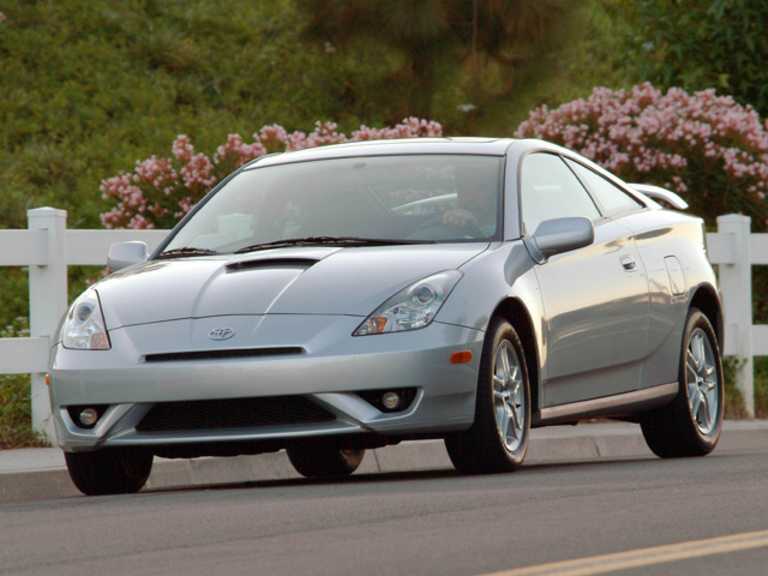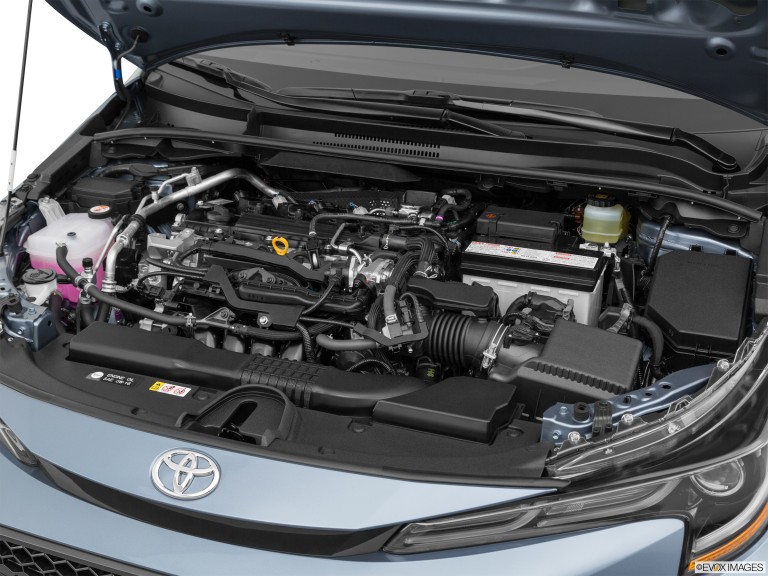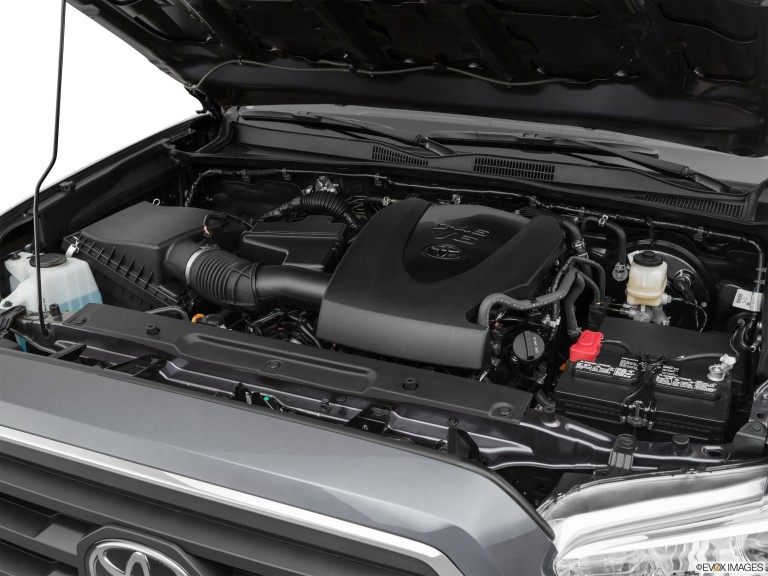Well known for their great looks, impressive features and rock-solid reliability, Toyota vehicles have always been a top choice for any used car buyer. Part of that comes down to the engines that drive each and every Toyota car, truck, SUV and minivan.
What are the different Toyota engine types?
Toyota engines come in numerous forms, from small yet efficient 4-cylinder units and practical V6 engines to large-displacement V8s. Toyota even makes a V10 engine for its luxury-oriented Lexus division.
Want to learn more about what motivates your Toyota? Follow along as we take an in-depth look at Toyota’s current engine offerings. We’re covering a lot of ground here, from horsepower ratings to fuel economy and reliability stats.
Toyota Engine History
Like many Japanese automakers, Toyota started out by making small and efficient 4-cylinders for its home market, as well as for export markets including the United States. Toyota’s simple yet potent engine designs would slowly establish a reputation for reliability and overall refinement.
One of the automaker’s most notable engines is the 22R-E, found in a variety of their pickup trucks and SUVs throughout the 1980s and 1990s. The 1UR-FE and 3UR-FE V8 engines used by the current Toyota Tundra are also known for their reliable power and refinement.
Toyota is no slouch when it comes to performance. Tuners of all stripes fondly regard the twin-turbocharged 2JZ-GTE as a highly versatile and potent powerplant, capable of handling engine tunes well beyond its official 320-hp power rating.
The all-aluminum 2ZZ-GE is another performance-oriented engine, this time found in the Matrix and Celica GT-S. Rated at up to 190 hp, the 2ZZ-GE even made its way into the Lotus Elise, making the lightweight roadster plenty quick around the corners.

Popular Toyota Engines
Dynamic Force Engines

The Dynamic Force engine family is what powers many of Toyota’s current offerings, including the 2021 Corolla, Camry and Avalon. You’ll also find these engines in many of Toyota’s hybrid cars, including the RAV4 Plug-in Hybrid.
What makes the Dynamic Force engines so special is their ability to deliver excellent fuel efficiency without any sacrifices in performance. A combination of direct injection, tighter engine tolerances, a longer stroke and variable cooling system are just a few of the tricks employed to make that possible.
Horsepower and torque figures vary depending on the application:
- Corolla: 169 hp and 151 lb.-ft.
- Camry: Up to 206 hp and 186 lb.-ft.
- Avalon: 207 hp and 184 lb.-ft.
- RAV4: 203 hp and 182 lb.-ft.
2GR-FKS

If you opt for a V6-equipped 2020 Camry, then this is the engine you’ll find under the hood. The 2GR-FKS is a 3.5-liter DOHC design with 24 valves and variable valve timing, which makes it capable of delivering high power while providing impressively smooth operation.
Under the hood of the 2020 Camry, the 2GR-FKS belts out a stout 301 hp and 267 lb.-ft. of torque.
Here are some other Toyota vehicles that use the 2GR-FKS engine, along with their current power outputs:
- Tacoma: 278 hp
- Sienna: 296 hp
- Highlander: 295 hp
4U-GSE
If you’re wondering what’s under the hood of the 2020 Toyota 86 and Scion FR-S, here’s your answer. In contrast to the other engines mentioned, this flat 4-cylinder engine is actually designed and built by Subaru.
What it does take from other Toyota engines, however, is the D4-S direct and port fuel injection system. The 4U-GSE initially made 197 hp @ 7,000 rpm, but continuous improvements bumped that figure up to 205 hp.
What People Also Ask about Toyota Engines
Which Toyota Engines are the Most Troublesome?
Given that so many Toyota engines have given their owners faithful service, it’s hard to imagine there’d be one that would give any owner trouble. But even the finest pearls can have a flaw every once in a while.
Surprisingly, the 1MZ-FE V6 and 5S-FE I4 engines could be considered the most troublesome due to their propensity for oil gelling—an issue that actually merited a recall campaign. Fortunately, regularly scheduled oil changes can help prevent this problem from happening.
How Long Does a Toyota Engine Last?
Toyota engines are especially known for being long-lived. With proper care and recommended maintenance, a typical Toyota engine can easily reach 250,000 miles. Many have broken the 400,000-mile mark and beyond without any issues. It’s not unusual for used Toyotas to command a premium regardless of their high mileage.
How can I Identify a Toyota Engine?
The most reliable way to identify a Toyota engine is by searching for the engine number stamped on the engine block. Another quick way is by checking the 17-digit Vehicle Identification Number (VIN), located on the dashboard on the driver’s side.
Which Toyota Engine is the Most Fuel Efficient?
It seems like just about every Toyota engine offers impressive fuel efficiency in one way or another. However, the 2ZR-FXE takes the prize when it comes to saving fuel, thanks largely to its Atkinson cycle design and various internal tweaks that help increase its maximum thermal efficiency.
With the help of electric motors, the 2ZR-FXE in the 2021 Prius Prime achieves an EPA-estimated 54 combined mpg and 133 combined MPGe.
Stay Safe When Buying a Used Car
Whether you have your sights set on a used Toyota Corolla or something like the cavernous Toyota Sequoia, it helps to know exactly what you’re buying. Get a Vehicle History report and know more about your vehicle’s performance stats, open recalls and much more.